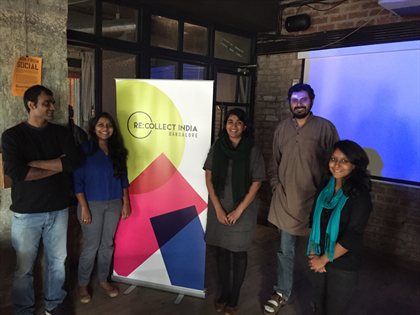Science in India
This project was originally intended to develop the concept and vision for a major travelling exhibition at the Science Museum London in Autumn 2017.
Although the Science Museum’s exhibition was subsequently cancelled, a number of planning workshops have helped to inform research and teaching at King’s, and curating methodologies.
In April 2015 a ‘Curatorial Workshop’ brought together a select group of curators and exhibition professionals to share best practice whilst exploring questions relating to curatorial methodologies. Offering time for reflection and professional development, ‘Curatorial Questions’ started with a Pecha Kucha-inspired session. Presentations from invited speakers prompted further discussion to help answer these questions:
- How to curate cultures out of context?
- How to tell a story in a museum or exhibition context when objects are missing or few in number?
- How to de-familiarise familiar objects and yet make them specific to context?
Presentations were given by Barrie Cook, Curator of Medieval and Early Modern Coinage at the British Museum; Alison Boyle, Deputy Keeper of Science and Medicine at the Science Museum; and Nina Due, Head of Exhibitions at the Design Museum.
The project has supported the publication of three illustrated Tara Books publications exploring traditional Indian folklore tales with contemporary relevance:
Water by Subhash Vyam
Where Has the Tiger Gone? by Dhavat Singh Uikey
An Allegory of Survival by Ramsingh Urveti (late-2020)
The final element of the Science in India project is the development of a writers’ handbook which will support a crowd-sourced online repository, ‘Recollect India’, documenting India’s rich history of science, technology, and engineering, which will be linked to from this webpage once live.

Project team
Dr Jahnavi Phalkey is a historian of twentieth century science and technology and author of Atomic State: Big Science in Twentieth Century India (2013).
The Science Museum (SciMus) was founded in 1857 as part of the South Kensington Museum, and gained independence in 1909. Today the Museum is world renowned for its historic collections, awe-inspiring galleries and inspirational exhibitions.
Science in India is a collaboration between the India Institute at King’s College London and the Science Museum, supported by the university's Culture team.